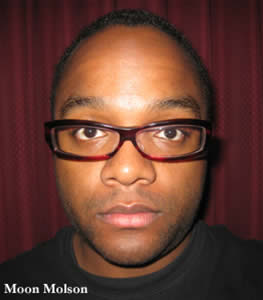 <b>Moon Molson</b> was born in Grand Rapids, Michigan and moved more than 15 times before settling in his current “home town” of New York City. He graduated from Dartmouth College where he received a B.A. in English, Film Studies and Philosophy.<br>
<b>Moon Molson</b> was born in Grand Rapids, Michigan and moved more than 15 times before settling in his current “home town” of New York City. He graduated from Dartmouth College where he received a B.A. in English, Film Studies and Philosophy.<br>In fall 2000, Moon entered the M.F.A. program in Film Directing at Columbia University’s School of the Arts. In 2002, he won the prestigious Academy of Television Arts & Sciences Student Internship and was flown to Los Angeles to work in television commercials.
His thesis short film “Pop Foul” won the REEL Shorts Jury Prize at the 2007 South By Southwest Film Festival (SXSW), the 2006 Student Academy Award, the HBO Short Film Award at the 2006 American Black Film Festival. He is a 2007 NYFA Film Fellow and 2007 NYSCA Grant recipient.
(SXSW), the 2006 Student Academy Award, the HBO Short Film Award at the 2006 American Black Film Festival. He is a 2007 NYFA Film Fellow and 2007 NYSCA Grant recipient.
Cinema Without Borders: Please tell us a little bit about your background, and how you started making this short film.
Moon Molson: I was born in Grand Rapids, Michigan and, like I say in a lot of my written bios, I moved about 15 times before I ended up in New York City. Since I’ve lived most of my life in New 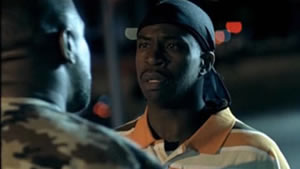 York and spent most of my high school years in New Jersey, I relate most to the culture of the Mid Atlantic East Coast. It’s in the Tri-State Area of New York, New Jersey and Connecticut that I place a lot of my stories. As far as Pop Foul is concerned, it originally began as a short story called “Boys’ Club” written by a collaborator of mine, Anthony Eleftherion, when he was a grad student at the Iowa Writers Workshop. It was about a boy from a Greek-Italian family in Bensonhurst, Brooklyn who sees his father get attacked after a Little-League game. Pop Foul, though based on that short story, is about an African American family in Newark, New Jersey. It starts the same way, with the boy’s father being attacked on the way home from a
York and spent most of my high school years in New Jersey, I relate most to the culture of the Mid Atlantic East Coast. It’s in the Tri-State Area of New York, New Jersey and Connecticut that I place a lot of my stories. As far as Pop Foul is concerned, it originally began as a short story called “Boys’ Club” written by a collaborator of mine, Anthony Eleftherion, when he was a grad student at the Iowa Writers Workshop. It was about a boy from a Greek-Italian family in Bensonhurst, Brooklyn who sees his father get attacked after a Little-League game. Pop Foul, though based on that short story, is about an African American family in Newark, New Jersey. It starts the same way, with the boy’s father being attacked on the way home from a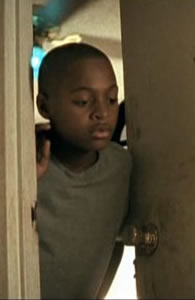 Little-League game, but then I take the film in a different direction. Where the original story goes more into exploring the idea of courage, Pop Foul the film delves into the nature of the lies that family members tell one another in the name of protecting each other, and how those lies can go wrong even though the they’re told with good intentions.
Little-League game, but then I take the film in a different direction. Where the original story goes more into exploring the idea of courage, Pop Foul the film delves into the nature of the lies that family members tell one another in the name of protecting each other, and how those lies can go wrong even though the they’re told with good intentions.
My collaboration with Anthony on the scri pt was great because we’ve had a lot of similar experiences growing up. Despite being from ethnically different neighborhoods, there were a lot of similarities just in terms of socio-economic background. So we eventually cross-pollinate in our storytelling and a lot of the short stories he writes and the original scri pts that I write could be written by either of us because we share a consistency of concerns.
After we finished the scri pt, it took us nearly two years to raise the initial funds to shoot the film – but we didn’t have enough money to actually do post-production. So, after the film was shot, it sat in the vault at Magno Sound and Video in New York City for 3, maybe even 4, months before I was able to raise enough money to pay for the developed negative and video transfers 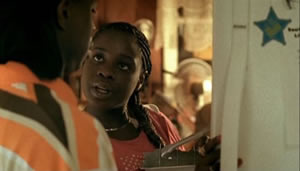 and start doing post. We finally chopped together a rough cut in late 2006 and began submitting to festivals. Luckily, the rough cut was strong enough to win some awards and I was able to use the prize money to finish my final cut for Sundance in January 2007.
and start doing post. We finally chopped together a rough cut in late 2006 and began submitting to festivals. Luckily, the rough cut was strong enough to win some awards and I was able to use the prize money to finish my final cut for Sundance in January 2007.
CWB: The acting in the movie is wonderful—it’s really great. How did you manage to get the actors to work with you, and how did you get all the performances to come out so naturally?
Moon: Well, as a graduate film student I took a lot of classes on directing actors with some great instructors. The difference between this film and my previous projects was that I went out on a limb and invested the money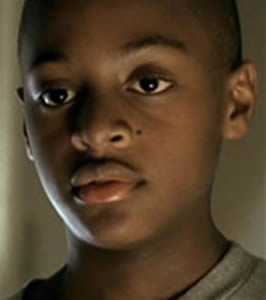 in a casting director. I had to be serious about this film and I had done casting on my own for other projects, but you just don’t get the same quality of actor when you do it yourself. I was lucky to meet the casting director Liz-Ortiz Mackes through filmmaker friends. She organized the auditions and basically brought amazing actors to us.
in a casting director. I had to be serious about this film and I had done casting on my own for other projects, but you just don’t get the same quality of actor when you do it yourself. I was lucky to meet the casting director Liz-Ortiz Mackes through filmmaker friends. She organized the auditions and basically brought amazing actors to us.
Once I decided who I wanted to work with, the actors I chose simply brought an incredible amount of talent and creativity to the table to collaborate on my scri pt. I think a lot of the realism of the performances came from the fact that the actors really understood who the characters were. If there wasn’t an aspect of that particular character in the actor that we cast, that actor knew someone who was that character, so a real life experience was brought to the acting. This group of actors was the best I had ever worked with. It was the first time I had worked with talented professionals as apposed to people who were not as well trained, and not as gifted. It was a joy to work with them.
CWB: What is your next step as a film director?
Moon: Right now, I’m trying to do a polish on a couple feature scri pts that are in various states of disrepair. I also have two short scri pts I’ve written that are ready to shoot, and I’m in the process of writing grant applications to raise money for them. Considering it takes a long time to raise money for feature films, I’m hoping that in the meantime I’ll be able to continue making short films. I don’t want to sit around for a half decade doing nothing while I’m raising 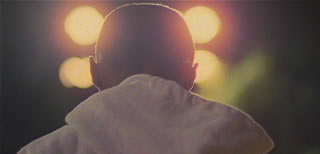 money for a feature film. Hopefully, if it takes longer than expected, I’ll be able to continue to make shorts in order to hone my craft and keep my name and my work out there.
money for a feature film. Hopefully, if it takes longer than expected, I’ll be able to continue to make shorts in order to hone my craft and keep my name and my work out there.
CWB: What is a film that you have seen recently and really enjoyed?
Moon: A film that I have seen recently that affects me on many levels is “City of God.” It just kind of has everything. It’s one of those films that other filmmakers say that they wish they had made, and that’s the kind of film it is for me. It touches upon a lot of my concerns as an artist: it deals with marginalized people, poverty, desperation – just people trying to survive in really harsh circumstances. The story, the cinematography, the editing, the syntax, the rhythm, and the pacing are all just absolutely amazing. For me, it’s basically the closest thing to a perfect film – a masterpiece – that I’ve seen in recent years.

